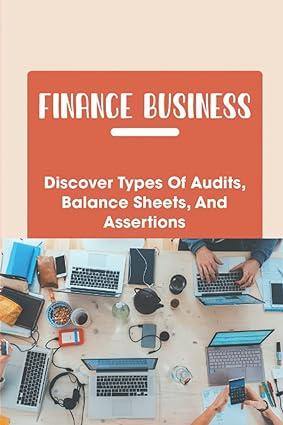Question
Case 7-3 Cubbies Cable Ernie Binks is a big baseball fan, so it is quite natural for him, at a time like this, to recall
Case 7-3 Cubbies Cable Ernie Binks is a big baseball fan, so it is quite natural for him, at a time like this, to recall a phrase attributed to Yogi Berra: It was deja vu all over again. Binks is the partner in charge of the Cubbies Cable audit for the accounting firm of Santos & Williams LLP. Cubbies is a publicly-owned cable company headquartered in Chicago. A situation arose with the client over the proper accounting for cable installation costs in the year-ended September 30, 2013, financial statements. The client wants to expense the costs while the audit manager has recommended capitalization. It is important to resolve the issue quickly because the client will use the September 30, 2013, audited annual statements to apply for a $10 million loan at one of two banks Chicago First National or Bankers Trust. Binks reviewed a memorandum prepared by John Kessinger, the audit manager, that details the accounting issues. This memo is presented in Exhibit 1 below. The revenue earned from the cable installation job enabled the company to complete the fourth quarter of 2013 which recovered earnings. Revenues at September 30, 2013, exceeded revenues at September 30, 2012, by 22 percent. Net income for the twelve months ended September 30, 2013, was 24 percent above the same amount in the prior year. Binks is now preparing for a meeting with Rod Hondley, the advisory partner on the Cubbies Cable audit. Hondley has already made it known that he supports the clients position on the cable installation costs. Binks knows Santos & Williams operates by the simple philosophy that you have to let the client win one somewhere along the line or you may lose that client. The dilemma for Binks is he is in the uncomfortable position of going against the recommendation of the audit manager if he agrees to the clients position that Hondley supports. Binks thinks about the fact that the situation is unique in that the clients preferred accounting treatment would actually lower earnings for the year-ended September 30, 2013, and increase it in subsequent years. He considers his options and reflects on another Yogi-ism : When you come to a fork in the road, take it.
Exhibit 1 Memo on Capitalization of Cable Equipment
October 15, 2013 We have audited the financial statements of Cubbies Cable since September 30, 2008. The audited statements are typically used by banks in granting short-term loans to Cubbies Cable. During the 12-month period ending September 30, 2013, Cubbies constructed a major new cable system in parts of Chicago that enabled it to increase its presence in that market. The revenue from the system through September 30, 2013, exceeded projections by more than 20 percent. A difference of opinion arose over the proper accounting for cable construction costs. The client wants to expense all of the costs during the year in the quarter ended September 30, 2013. The alternative position we recommend is to capitalize the costs and amortize them over the estimated life of the cable system. Two different types of costs were involved: Cable television plant: Costs associated with constructing the cable installation project. SFAS 51, Financial Reporting by Cable Television Companies, requires that cable television plant costs incurred during the prematurity (i.e., construction) periods be capitalized in full. We had protracted discussions with Cubbies Cable regarding this issue, and we were told that there was no way the company would agree to capitalize any of the costs. Interest Cost: The client initially expensed all interest costs related to a construction loan during the prematurity period. We convinced the client to change its accounting to capitalize the interest costs during the construction period. We used for support our reference to SFAS 51. This statement requires application of SFAS 34, Capitalization of Interest Cost, to interest costs incurred during the construction of an asset. The application of paragraphs 13 and 14 of SFAS 34 to the clients situation requires that interest costs incurred during the prematurity period be capitalized in full by applying the interest capitalization rate to the average amount of accumulated expenditures for the asset during the period. The purpose of this procedure is to capitalize the amount of interest costs incurred during the prematurity period that theoretically could have been avoided if expenditures for construction of the cable television plant had not been made.
Questions 1. What do you think was the motivation for Cubbies Cable in taking the position to expense all cable costs during the year ended September 20, 2013. Would you characterize the position as an attempt to manage earnings? Why or Why not?
2. Who are the stakeholders in this situation? Identify the major ethical issues that should be of concern to Binks in deciding whether to just go along with the firm in it support of the client (based on Hondleys position) or support the position of the audit manager. What would you do if you were in Binks position? Why?
3. Do you think it is ethical for CPAs to horse trade when negotiating with a client about the proper GAAP to apply in a particular situation? How does such negotiating relate to the accepted auditing standards of the AICPA and PCAOB?
Step by Step Solution
There are 3 Steps involved in it
Step: 1

Get Instant Access to Expert-Tailored Solutions
See step-by-step solutions with expert insights and AI powered tools for academic success
Step: 2

Step: 3

Ace Your Homework with AI
Get the answers you need in no time with our AI-driven, step-by-step assistance
Get Started


